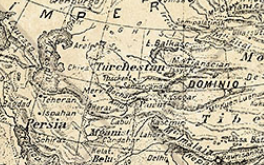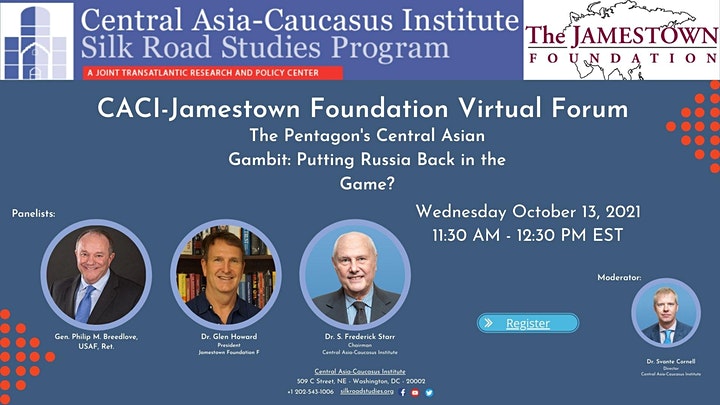By Svante E. Cornell
March 9, 2022
https://thehill.com/opinion/national-security/597503-no-the-war-in-ukraine-is-not-about-nato

Russia's invasion of Ukraine has led to widespread condemnation and an unparalleled outpouring of support for Ukraine. At the same time, a motley crew, including some academics and former U.S. officials, has essentially blamed the war on the West, and in particular NATO enlargement. The argument is basically that Russia would not have become so aggressive if Western powers had been more accommodating. This line of thinking, however, is simply incorrect.
That’s because Russia rediscovered its imperial vocation before NATO enlargement, and the war in Ukraine is, in fact, about Putin’s great power ambitions.
Russian leaders have emphatically argued that NATO countries, led by the United States, violated assurances made to Moscow at the end of the Cold War that the alliance would not expand to the east. This claim, however, has been debunked as a myth. Even the last Soviet leader, Mikhail Gorbachev, has denied that the issue of NATO enlargement was even discussed at the time. Russian President Vladimir Putin himself did not have much to say about NATO enlargement until his infamous speech at the 2007 Munich Security Conference.
NATO's enlargement began in the mid-1990s, at a time when the alliance was embarking on a strategic shift, focusing on out-of-area operations instead territorial defense. NATO urged new member states to focus on specific cutting-edge expertise, and programs for partner countries like Georgia were mostly about training for peacekeeping operations in places like Afghanistan. NATO's shift is perhaps best illustrated by the fact that the alliance lacked a workable plan to defend the Baltic states when Russia invaded Georgia in 2008. It is really only after that war, and in particular after Moscow's annexation of Crimea in 2014, that NATO returned to its original focus on collective defense.
The real reason for the deteriorating security situation in Europe — and most blatantly the Russian invasion of Ukraine — can be found in changes that have taken place within Russia itself, and most directly the increasingly imperialist worldview of the Russian leadership.
This change began as early as 1994 and accelerated after Putin came to power. The war in the Russian breakaway republic of Chechnya from 1994 to 1996 was in many ways the starting point. Russia’s defeat there showed how far the country had fallen, leading many former Soviet republics to part ways with Russia. Moscow responded by systematically undermining neighboring states like Moldova, Georgia and Azerbaijan through the incitement of ethnic conflicts on their territories — a classic divide-and-rule tactic.
It is largely forgotten today that Putin built his political career on regaining control of Chechnya, something he did by starting a bloody war on the basis of a lie. It is generally well established today that the explosions in apartment buildings in Moscow in the summer of 1999 that Putin blamed on Chechen rebels were in fact carried out by the Russian security service under Putin's own leadership — the purpose being to create popular support for Putin's war, and by extension his leadership.
Putin's view of the world, in turn, is closely linked to his own hold on power — and that explains Russia's increasingly aggressive actions.
The “color revolutions” in Georgia and Ukraine in 2003-4 had the potential to show that democratic change could happen in former Soviet countries, something that would undermine Putin’s pursuit of authoritarian rule (what he called a "vertical of power"). Democratic rule in neighboring countries therefore had to fail.
Ukraine, in particular, was central to Putin. If a kindred Slavic and Orthodox country like Ukraine developed into a functioning democracy, this could pull the rug out from under Putin's project. If Ukraine showed that something better was possible, why should Russians be content with living under an authoritarian and corrupt regime?
For a time, Moscow tried other tactics. Pro-Russian politician Viktor Yanukovych managed to get elected as president of Ukraine in 2010, but his misrule led to the popular uprising of 2013. That event, in turn, showed that the Ukrainian people saw Europe, rather than Russia, as their future. Putin responded by annexing Crimea and starting a war in eastern Ukraine. At home, Putin's rhetoric became increasingly nationalistic, and now focused on concepts such as the "Russian world" in order to foment a divide between Russia and an allegedly decadent West.
For this to succeed, however, Putin needs to bring Belarus and Ukraine into the "Russian world," by force if necessary. This, rather than NATO enlargement, is what the war in Ukraine is about.
Svante Cornell is director of the American Foreign Policy Council’s Central Asia-Caucasus Institute.




